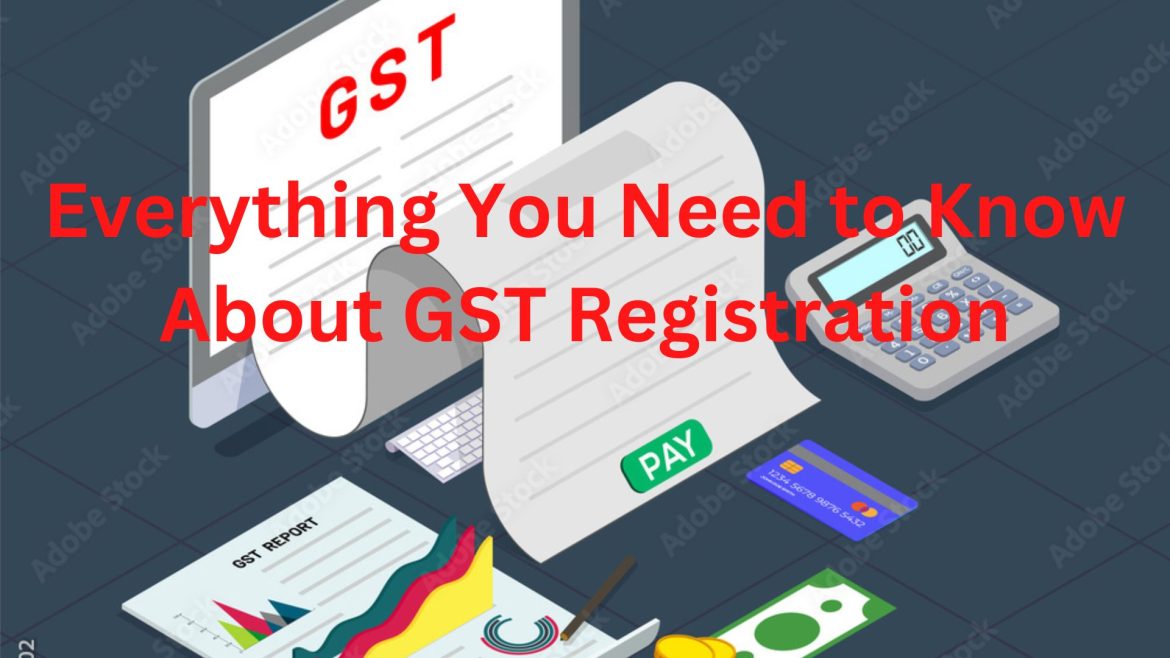GST registration allows your firm to operate legally and establishes your brand as reliable and trustworthy. GST registration is the first step toward successfully managing your company’s taxes, as the GST portal has streamlined numerous processes, from application to filing returns.
You’ve probably heard of the Goods and Services Tax, whether you’re a business owner, a service provider, or a customer (GST). On July 1, 2017, India’s GST went into force, transforming the country’s entire taxation system.
The first step in paying the GST is to register your business with the GST system. If you’re a small business owner, the process may seem overwhelming. Here’s a quick guide to teaching you everything you need to know about GST registration for your business.
Who is eligible for GST registration?
Your annual turnover must fall within one of the following ranges to be eligible for GST registration:
- The barrier for the manufacturing industry is Rs. 40 lakhs or higher.
- The threshold for the service sector is Rs. 20 lakhs or more.
- The threshold for businesses in the north-eastern and hill states is Rs. 10 lakhs or more.
You must also apply for GST registration if you meet any of the following criteria:
- You sell your products or services in a state other than your own.
- You work in the import-export industry.
- You want to create tax invoices for your customers.
- As a Casual Taxable Payer, you are a corporation attending an exposition or event outside of your state.
- Under the reverse charge technique, you are taxable.
- You’re an agent representing a registered taxpayer.
- You own an e-commerce or aggregator business.
What documents are required for GST registration?
You must have the following documents on hand to register for GST:
- Photographs
- PAN Card for Business
- Aadhar Card/Passport/Driving License are examples of identity evidence.
- Proof of your offices’ addresses
- Bank information might be obtained through a statement, a cancelled check, or a passbook.
- A statement, a cancelled check, or a passbook can all be used to get bank information.
- Deed of Partnership for Partnership Firms
What exactly is GSTIN?
A GST officer will review your whole application after your GST registration is complete. You will be given a GST Identification Number, or GSTIN, if it is accepted, which you must include on all of your invoices.
When is it OK to register for several GST registrations?
There are some circumstances in which you can register for multiple GST numbers:
- If your business operates in more than one state – for example, distributing items to multiple states – you must register for GST in each state.
- If your business works in a single state but has many verticals, you can register for various GSTs to simplify your accounting.
- If a company is based in one state but delivers products and services across India, it does not need to register for numerous GST registrations.
When is the GST composition scheme required by a business?
The Composition Scheme was created to assist small business owners and taxpayers with annual revenue of less than Rs. 1.5 crores.
These taxpayers benefit from the following:
- They can only file one return every quarter, rather than monthly like other taxpayers.
- They owe very little in taxes.
- They have fewer obligations in terms of books and records, invoicing, and so on.
What are the benefits of GST registration?
GST registration has various advantages for business owners in the long run. They include:
- Because you only have to pay for the value-added services provided by your firm and not any additional “tax on tax,” the amount of tax you pay to the government can be lowered.
- For your clients, e-commerce platforms, government tenders, banks and financial institutions, MNCs, and more, the GSTIN is a symbol of authenticity. These companies will not engage with you unless you have registered for GST.
- Because there is only one return to file, there are fewer compliances to follow under GST.
- GST provides precise regulations on interstate movement of products for e-commerce brands that were not before defined.
Finally, GST registration permits your firm to operate legally and establishes your brand as a reliable and reputable one. GST registration is the first step toward successfully managing your company’s taxes, as the GST portal has streamlined numerous processes, from application to filing returns.
Suggested Read: GST Filing

